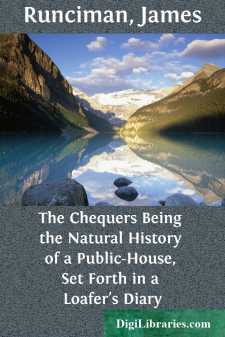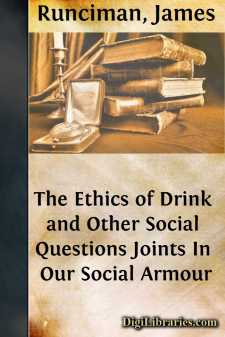Categories
- Antiques & Collectibles 13
- Architecture 36
- Art 48
- Bibles 22
- Biography & Autobiography 813
- Body, Mind & Spirit 142
- Business & Economics 28
- Children's Books 15
- Children's Fiction 12
- Computers 4
- Cooking 94
- Crafts & Hobbies 4
- Drama 346
- Education 46
- Family & Relationships 57
- Fiction 11828
- Games 19
- Gardening 17
- Health & Fitness 34
- History 1377
- House & Home 1
- Humor 147
- Juvenile Fiction 1873
- Juvenile Nonfiction 202
- Language Arts & Disciplines 88
- Law 16
- Literary Collections 686
- Literary Criticism 179
- Mathematics 13
- Medical 41
- Music 40
- Nature 179
- Non-Classifiable 1768
- Performing Arts 7
- Periodicals 1453
- Philosophy 64
- Photography 2
- Poetry 896
- Political Science 203
- Psychology 42
- Reference 154
- Religion 513
- Science 126
- Self-Help 84
- Social Science 81
- Sports & Recreation 34
- Study Aids 3
- Technology & Engineering 59
- Transportation 23
- Travel 463
- True Crime 29
The Chequers Being the Natural History of a Public-House, Set Forth in a Loafer's Diary
by: James Runciman
Categories:
Description:
Excerpt
INTRODUCTION.
It is risky to go home with some of the company from the Chequers, for good-fellowship is by no means fostered in the atmosphere of a public-house. The creatures who write about the cheerful glass, and the jovial evening, and the drink that mellows the heart, know nothing of the sad work that goes on in a boozing-place, while the persons who draw wild pictures of impossible horrors are worse than the hired men who write in publican's papers. It is the plain truth that is wanted, and one year of life in a public-house teaches a man more than all the strained lectures and colourless statistics. I am going to give a series of pictures that will set forth every phase of public-house life. It is useless to step casually into a bar, and then turn out a flashy article. If you want to know how Drink really acts on the inner life of this nation you must actually live among the forlorn folk who drink Circe's draught, and you must live as their equal, their friend, their confidant. I am a Loafer, and not one of the gang at The Chequers would ever dream of regarding me as anything but an equal. My friend Donkey Perkins, the fighting man, curses me with perfect affability and I am on easy terms with about one hundred costermongers. If a "gentleman" went among them he could learn nothing. Observe the hush that falls on the babble of a tap-room if any well-dressed person goes in; listen to the hum of warning, and then notice the laboured hypocrisy of the talk that goes on so long as the stranger is there. I have seen that odd change scores of times, and I know that nothing can be more curious than the contrast between the scrappy, harmless chat that goes on while the representative of respectability is there, and the stupid, frank brutalities which the advent of the visitor silenced.
At nights I go home with one after another of my set, and at merry seasons we stay together till early morning. They throw off all disguise before me, and even the thieves are not afraid. When once you are on level terms with the community you begin to see what is the true result of drink. The clergyman, the district visitor, the professional slummer—all the people who "patronise"—never learn the truth, and they positively invite the wastrel classes to lie.
Some time ago I read some "revelations" which made a great stir in the country. The writer was accused of publishing obscenities, but what struck me most in his work was its absolute display of ignorance. The poor, innocent man had listened to stories which were told in the dialect that is used to impress outsiders, and I laughed as I seemed to hear the very tones of some shady gentry of my own acquaintance. The unhappy vendor of revelations went among his subjects of study for six weeks, and then set up as an authority. Of course, the acute, sleazy dogs whom he questioned kept back everything that was essential, and filled their victim's mind with concoctions which amused professional blackguards for a month. Could that literary adventurer only have heard the criticism which daily met my ear, he would have found that many eager souls were longing for a chance to plunder such an obvious "mug." Another writer, whose works appear in a morning journal, professes to make flying visits to various queer places, and his articles are published as facts; but I had the chance of testing the truth of two tales which dealt with official business, and I found that these two were false from end to end. Not only were they false, but they illustrate nothing, for the writer did not know the conditions of the life which he pretended to describe, and his fiction misled many thousands. Experience, then—sordid, miserable, long experience—is needed before anyone can speak the truth concerning the life of what Carlyle called "the scoundrel classes." The same experience only can teach you anything about the poor....





